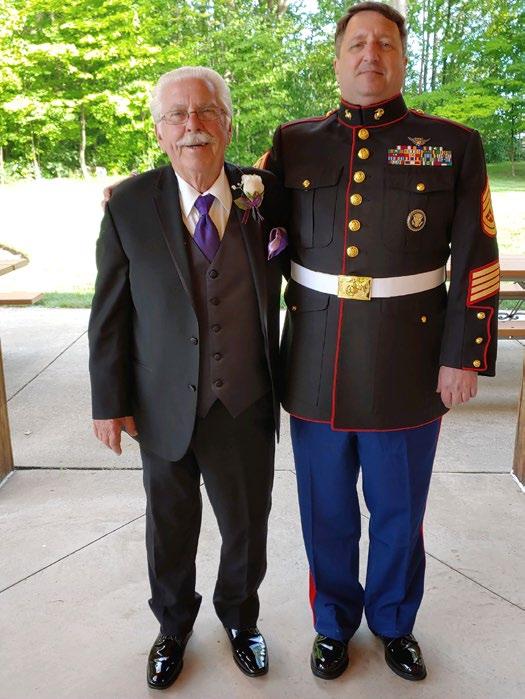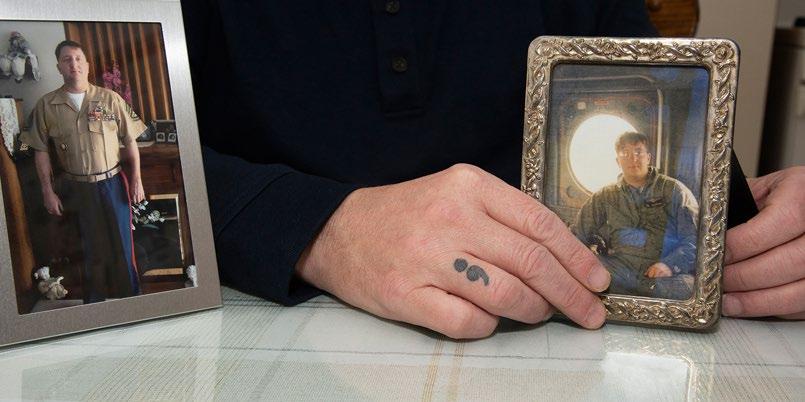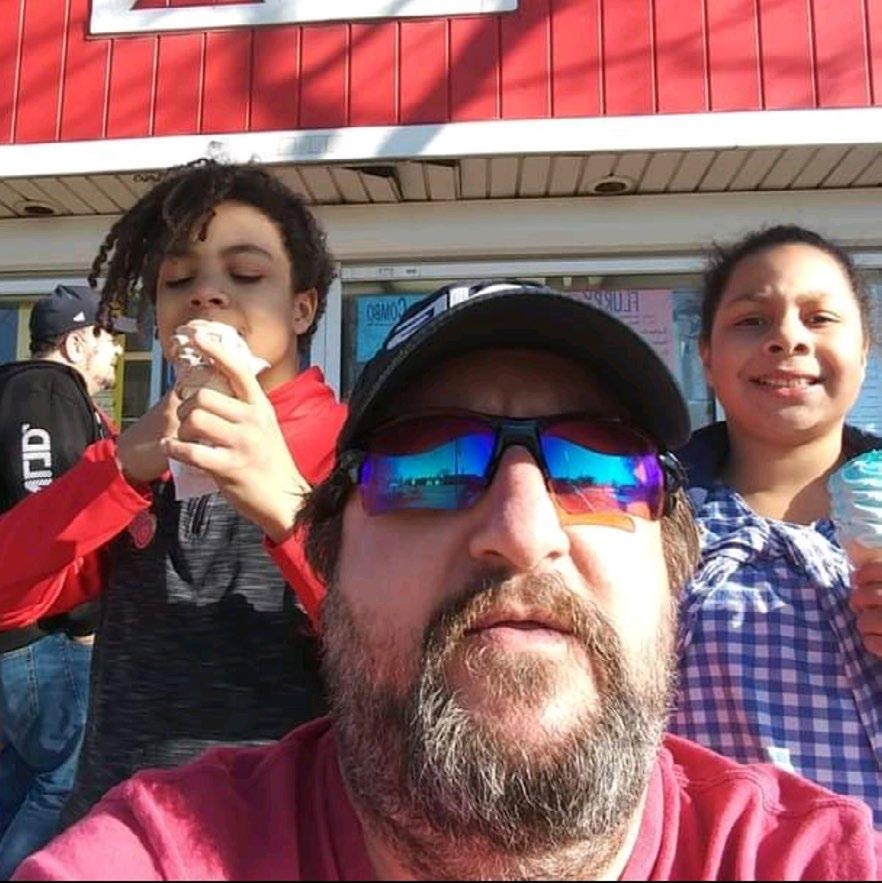
4 minute read
Nick Dmitruchina - Finding Purpose Again
Nick Dmitruchina is a retired Marine and always carried himself with confidence and was known for doing his job well and with pride. No one knew that he used work as a coping mechanism to deal with mental trauma inflicted on him as a young man. After retiring from the Marine Corps, he found himself in a failing relationship and began self-isolating after moving back to his hometown of Taylor, Michigan. His mental state reached a breaking point one summer night in 2018 when he decided to take a lethal dose of medication to end his pain. This decision seemed logical to him at the time because it meant his pain would go away. Nick was living with his lifelong friend, whom he calls his brother at the time of his attempted suicide. His brother normally didn’t feel the need to check on Nick at night, but this time he did, and he found Nick unconscious next to the bottle of pills. The doctors and nurses at Beaumont Hospital had little knowledge of overdoses of the particular drug Nick took and quickly determined that to save his life he needed to be taken immediately to the University of Michigan. Nick would later learn that the EMT who was supposed to drive him to U of M that day decided instead to ride in the back of the ambulance with Nick to try to keep him awake. The EMT was a Marine as well and couldn’t stand to lose another brother or sister this way.

Advertisement
Nick experienced multiple organ failure, was resuscitated on numerous occasions, and after several weeks was discharged into a treatment program at Beaumont Hospital. Five weeks of intense therapy taught him that his story is not unique. He’s not unusual. His story is like so many others, especially in the veteran community. He learned how to talk about his trauma and not to suppress his emotion. There are programs for active duty service members to speak with counselors anonymously about their mental health without scrutiny, but they aren’t widely talked about, unfortunately. These programs need more attention so that service members can get help before it’s too late. It isn’t news that military culture is one where showing weaknesses casts an unwanted spotlight, and that’s what causes a lot of service members to hide or bury their emotions or concerns about mental health. Nick got very good at hiding.
Mental health isn’t comfortable to talk about, but Nick isn’t shy about telling his story. He wants people to know where the resources are for those who need help. Nick’s therapy opened a can of worms, and he started to wonder if he was a good, moral person. He began peeling back layers and discovering moral injuries, survivor’s guilt, and the guilt of the emotional trauma he caused his family. Nick and his family are healing together, and his experience has strengthened their relationship. Telling his story is vital for Nick because if one person reads about his journey and decides to address their mental health issues head-on, then he was kept alive for a reason.

A commonly heard anecdote about veterans with PTSD or veterans leaving the military is that they no longer feel a sense of purpose. This theory couldn’t have been more accurate for Nick, and it was a significant factor in his decision to take those pills. His brother and sister-in-law have very demanding professions, so Nick has found his sense of purpose again and a new title, The Manny. His niece and nephew have dance recitals, soccer practice, track meets, etc., and Nick is there for all of it. Taking care of his niece and nephew has given him a reason to wake up every day. He’s also finds healing in volunteering in the veteran community where he lives and speaking to veterans about his journey because so many have had similar experiences. He is alive for a reason, and Nick doesn’t take that for granted. He had an opportunity to return to the ICU, where he spent several weeks recovering after his suicide attempt, and he thanked the doctors and nurses for saving him.


“I’m here to watch my niece and nephew grow up. I’m here to cheer them on at a baseball game. I’m where I’m supposed to be.”
If you suspect a friend or a family member are struggling with mental health, reach out to them and check on them. Often people who decide to take their own life aren’t in a position to ask for help because, at that point, they don’t want it. Reach out to your people even when you don’t think they are struggling because any small conversation could help.

